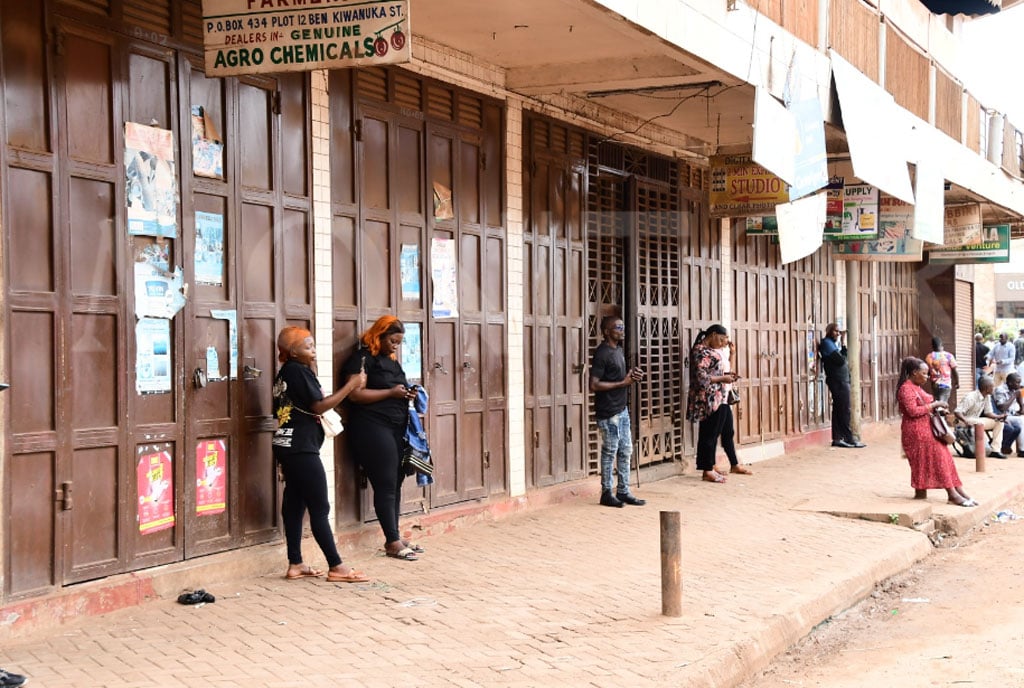Key issues traders want Museveni to sort out

Business owners stand outside their closed shops during a traders' strike against what they term "unfair taxes and URA's Electronic Fiscal Receipting and Invoicing Solution (EFRIS) system on April 16, 2024 in Kampala. PHOTO/MICHEAL KAKUMIRIZI
President Museveni is expected to meet city traders today to declare his decision on the tax concerns raised by the business community, including issuance of the electronic receipts for Value Added Tax (VAT) registered taxpayers and penalties.
“The President will meet the traders tomorrow [Tuesday] on issues of taxation and other issues at Kololo,” the Senior Press Secretary to the President, Mr Sandor Walusimbi, said yesterday.
Last month, traders went on strike protesting a range of issues, including the implementation of the Electronic Fiscal Receipting and Invoicing Solution (Efris), its enforcement and penalties of defaulters, high taxes on imported garments, bank agency notices issued by URA on traders’ accounts and corruption among tax enforcement personnel.
Traders alleged that Efris is complex and needs the employment of workers with IT and accounting skills to operate it yet the majority of the people in the wholesale trade attained minimal levels of formal education.
This prompted President Museveni to meet them and halted penalising Efris defaulters as he consulted several ministries about the issues traders raised.
According to the law, dodging taxes by manipulation of Efris attracts a Shs6m penalty.
Traders speak out
Traders’ leaders yesterday said their members would lock shops and flock to Kololo Ceremonial Grounds to hear from the president.
Mr Moses Lwegaba, the Federation of Uganda Traders Associations president, said: “We expect more than 10,000 traders to attend the meeting. We are mobilising them to go to Kololo and listen to the president’s decision.”
Mr Samuel Asiimwe, a tax consultant, said : “If he maintains Efris and VAT at all levels, the prices of products will increase and it will affect the common person in the villages.”
Since the enforcement of Efris, the local manufacturers have been distributing their products to retailers in the countryside, which wholesale traders say violates the Competition Act, 2023.



